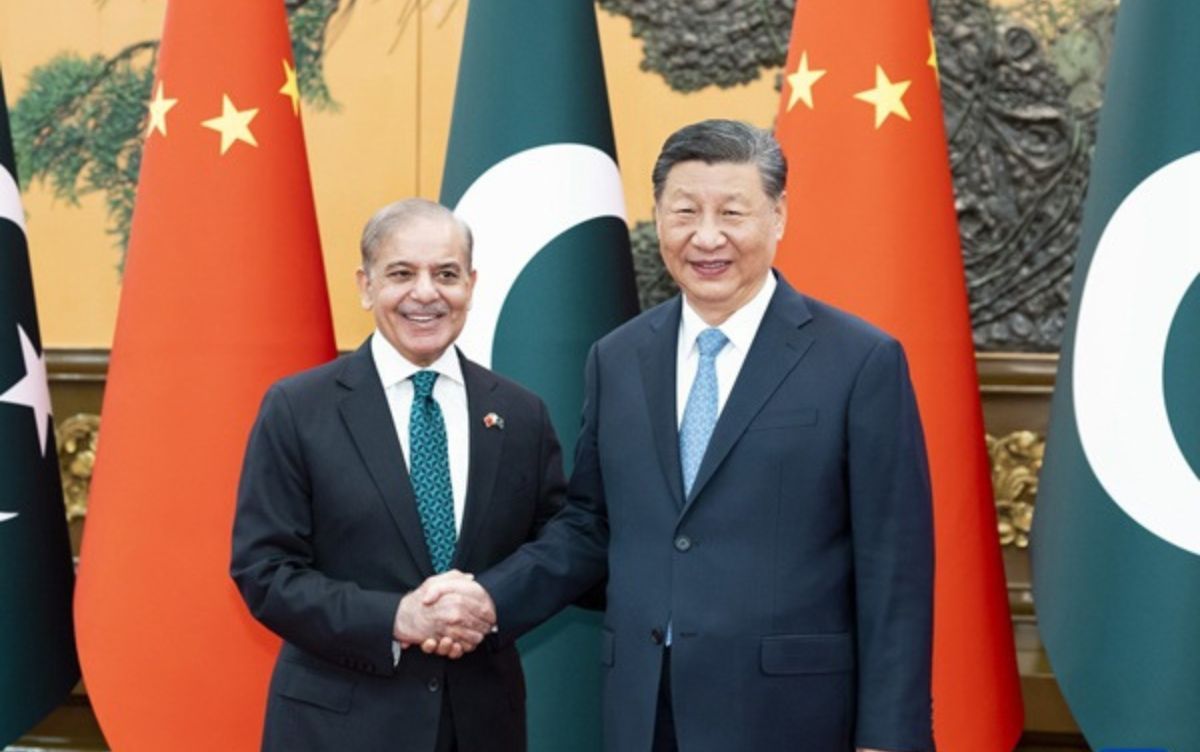Study Reveals Strong Growth in Pakistan’s Favourable Views of China
A new study has revealed that Pakistani public goodwill toward China grew significantly between 2015 and 2025, with survey respondents attributing the shift to CPEC-linked development, improved security conditions and expanding social interaction between citizens of both countries. The findings further indicate that the conflict between Pakistan and India in May 2025 strengthened China’s perception among participants, reinforcing its image as a reliable partner in a time of crisis.
The research was conducted by Dr Hassan Siddique, a communications specialist at the World Bank’s Punjab Green Development Programme, and Yasir Habib Khan, President of the Institute of International Relations and Media Research. Their work examined how public perceptions evolved before and after the rollout of CPEC projects, aiming to understand the transformation of sentiment over a decade.
 P.c. China Pakistan Economic Corridor
P.c. China Pakistan Economic Corridor
The study focused on two central questions: how Pakistanis perceived China prior to 2015 and how those views shifted following ten years of corridor-related initiatives. Using a quantitative method, the researchers gathered responses across a wide spectrum of society, including government officials, security institutions, business communities, academics, media practitioners, cultural organisations, think-tanks, religious groups, civil society and the broader public. Closed-ended questions helped capture economic, social and strategic attitudes, while statistical analysis and visualisation tools highlighted changes in public sentiment.
According to the study, Pakistanis entered the CPEC era with an already positive predisposition toward China, shaped by decades of diplomatic cooperation and defence alignment. Before 2015, China was viewed primarily as a dependable strategic ally, though its role in Pakistan’s everyday economic activity was seen as limited. At that stage, expectations largely revolved around China taking on a greater developmental presence in the future.
Perceptions strengthened further as CPEC projects delivered visible outcomes, particularly in infrastructure upgrades, improved transportation networks and enhanced connectivity. Survey participants pointed to simplified business processes, strengthened security and increased interaction between Chinese and Pakistani workers as major contributors to rising goodwill. Routine cooperation in workplaces and expanding cultural exchanges were also identified as important elements that fostered trust and made CPEC appear more people-centred.
The authors noted that performance and delivery were the most influential drivers shaping opinions, while media narratives and people-to-people engagement acted as additional reinforcements. Their analysis concludes that Pakistani goodwill toward China continues to be closely linked to practical results, transparency and clear communication of mutual objectives.
The research further highlights that the ongoing expansion of CPEC and its broader social implications will continue to shape public attitudes, with future trends depending on project continuity and economic impact. Beyond geopolitical considerations, increased exchange among religious groups, think-tanks, bureaucratic bodies and cultural and educational circles has played a vital role in shaping perceptions.
The study also emphasises the growing trend of learning the Chinese language in Pakistan, which has evolved from cultural curiosity into a strategic economic asset. Students and professionals increasingly see Chinese proficiency as a path toward better career opportunities, academic mobility and cross-border collaboration.
Since its formal launch in 2015, CPEC has remained a major subject of policy debate and public interest, standing out as one of the flagship initiatives under China’s Belt and Road Initiative (BRI). Designed to link Xinjiang with Gwadar Port, the corridor represents a transformational economic and strategic partnership aimed at reshaping Pakistan’s infrastructure, energy and trade landscape. The researchers also observed that Pakistan’s English-language media has largely maintained a pro-CPEC stance, reflecting official narratives while downplaying critical viewpoints, whereas social media has amplified both supportive and sceptical voices.